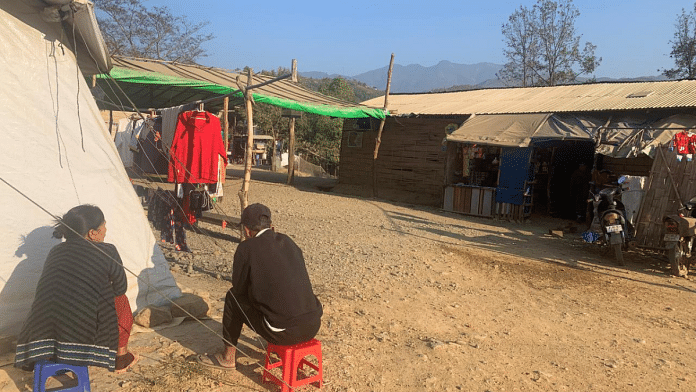Guwahati: In the build-up to the Mizoram assembly elections scheduled to be held later this year, Myanmar’s National Unity Government (NUG) has asked an estimated over 30,000 refugees living in the state, to not involve themselves in local politics.
A NUG representative told ThePrint they have been requested by some political parties to inform the refugees “not to get involved in political activities of Mizoram, especially any activity related to the coming election.”
“Refrain from any act that is prejudicial to the sovereignty and territorial integrity of the Republic of India”, said the notification issued by NUG — a government in exile formed in opposition to the junta. The notification was issued Friday by the NUG’s Ministry of Foreign Affairs for Myanmar nationals taking refuge in India.
The NUG, formed in April 2021, is a government-in-exile, comprising youth and pro-democracy activists of the country. The Myanmar government has labelled the NUG illegal, and its armed wing, the People’s Defence Force (PDF), a terrorist organisation.
The notification, a copy of which is with ThePrint, highlighted five points to be followed by those “temporarily taking shelter in India due to security reasons”, including “social organisations founded by these Myanmar nationals.”
The NUG has requested the displaced people to “be cautious and avoid unnecessary involvement in political and administrative matters of the state where they are taking refuge” — underlining it could be “election campaigns by political parties’ or ethnic conflicts.”
It further requested the refugees to “live in harmony and appropriately with host communities, and follow the religious and social rules regulated in the wards or villages where they are staying.”
Among other points mentioned in the notification, Myanmar nationals have been asked “not to get involved in illegal trafficking of drugs and wild animals, and related matters” as well.
This year, 22 Myanmar nationals have been apprehended in Mizoram by the paramilitary force of Assam Rifles in connection with the smuggling of drugs and weapons, defence sources told ThePrint.
Violence in neighbouring Manipur
According to the Mizoram government, more than 35,000 Myanmar nationals are taking shelter in different parts of the state since the February 2021 coup d’état in the neighbouring country. Some live with their relatives, others in encampments.
However, NUG sources told ThePrint that it could be “well around 50,000 displaced people”.
In addition, reports in regional media said more than 45,000 people have escaped the conflict in Manipur last month and taken refuge in Mizoram. The Mizoram government has reportedly rehabilitated over 8,800 individuals across the state.
The clashes were fuelled by long-standing tensions between the Meiteis or non-tribals in Imphal Valley and the Kuki-Zomi tribal communities living in the hills. The dispute is linked to the larger context of Meitei groups expressing concerns over the alleged growing numbers of refugees fleeing counterinsurgency operations by the junta in Myanmar.
Many of these refugees belong to the same ethnic group — the Kuki-Chin-Zomi-Mizo tribe that lives in the hills of Manipur.
They are known by different names in different regions. Those living in Chin Hills (Myanmar) are called “Chin”, while those residing in Manipur and Assam are known as “Kuki”. Tribes people in the erstwhile Lushai Hills, now Mizoram, are often referred to as Kuki-Chin-Lushai or Mizo.
Currently, they are collectively referred to as ‘Zo’ people, on the basis of the broad historical, anthropological, and linguistic affinity of the group.
(Edited by Richa Mishra)



